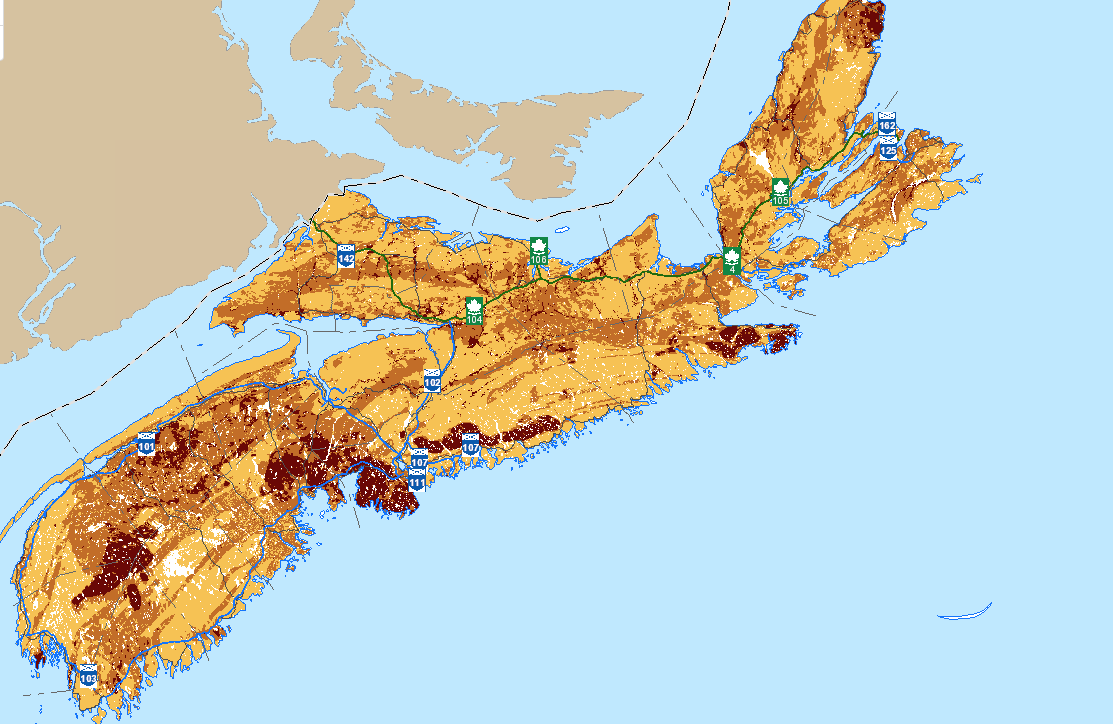More radon detectors are coming to Nova Scotia libraries
Places in HRM had the longest waiting period

caption
Radon levels across Nova Scotia. Red indicates high risk.The province says no one should wait longer than four months to borrow a radon gas detector from a library, so 100 more devices are on the way.
On Thursday, the provincial government, in partnership with the Lung Association of Nova Scotia, announced it is buying the devices, which means there will be more than 250 available in Nova Scotia libraries.
The detector loan program began in 2017 and is available in all nine library regions. The waiting time to borrow a detector is up to eight months, mainly in the Halifax Regional Municipality. The province says that wait time will now be cut down by half.
Michelle Donaldson, communications and special projects manager at Nova Scotia Lung Association, said approximately 120 lung cancer deaths in Nova Scotia can be attributed to radon each year. This makes up 16 per cent of lung cancer deaths. Related stories
“Timberlea and Tantallon are well known for having higher radon levels because of the soil makeup. There is no home that’s radon free,” said Donaldson.
Radon is an odourless, colourless and tasteless radioactive gas. It is released from soil, rock, water and some building materials like concrete and bricks. Gas levels are higher in winter due to windows and doors being more likely sealed. Donaldson said 8.7 per cent of homes in Nova Scotia test above the recommended average of 200 Becquerels per metre cubed.
Radon is the second-leading cause of lung cancer in Canada, and first for non-smokers, causing 3,200 deaths per year.
But many Canadians don’t know about radon. According to Statistics Canada, the number of Canadians who had heard of radon went down from 55 per cent in 2015 to 49 per cent in 2017.
Donaldson said it’s important to inform people about radon.
“Once you have that awareness, you can decide whether or not to test. If you test and your levels come back high, then there’s always the option to mitigate and try to protect your lung health and lung health of those you love,” she said.
According to the Nova Scotia Lung Association, the cost of hiring a professional contractor to do testing costs anywhere from $500 to $3,000.
Four other provinces have radon detector programs based on Nova Scotia’s program, including P.E.I., Ontario, Manitoba and B.C.
The 100 new devices are going to cost $30,000. Donaldson said they will be circulated to all libraries within a month.
About the author
Madeline Biso
Madeline Biso is a student journalist at University of King's College. Her main interests are investigative and data-driven stories. When not...
